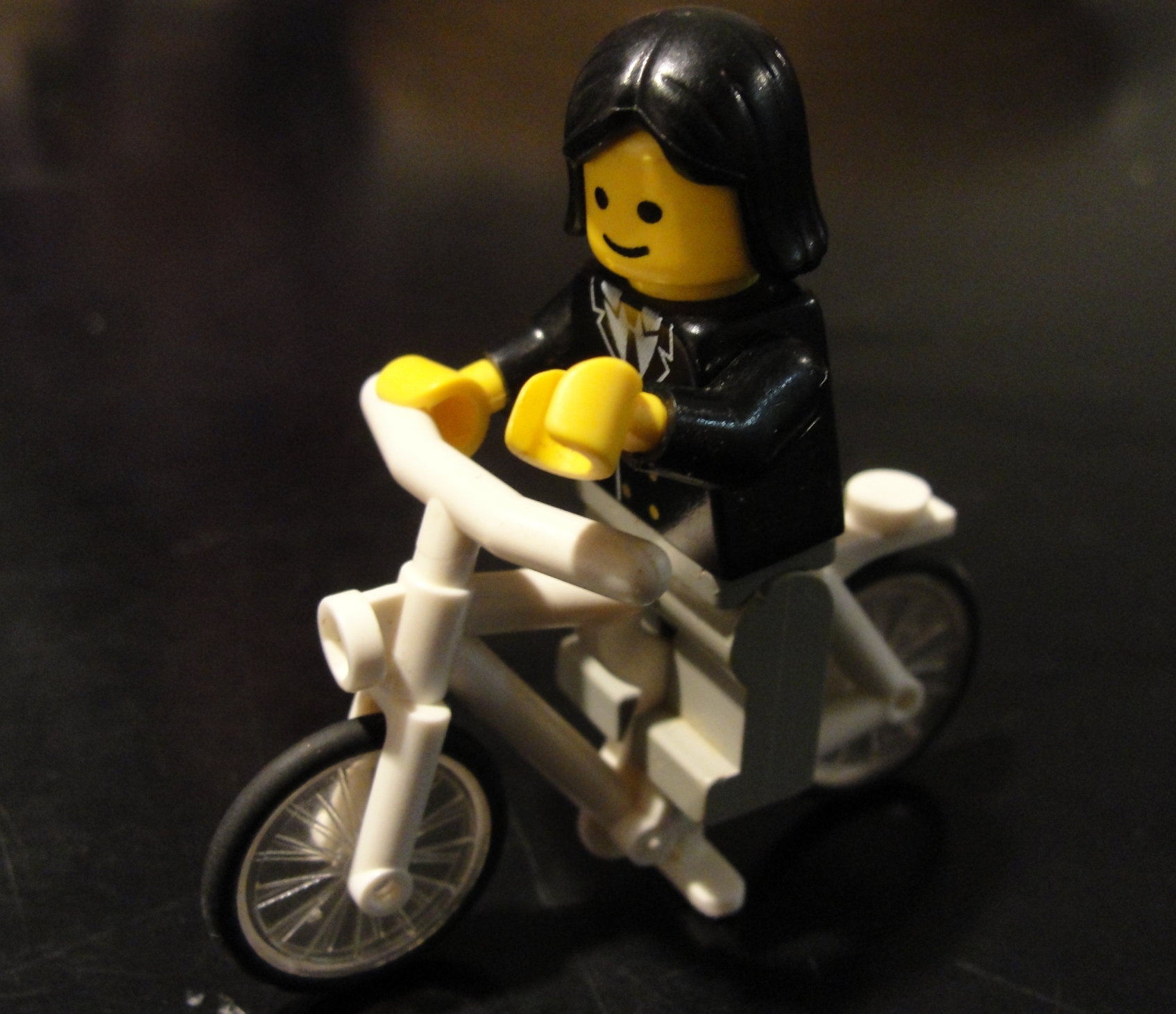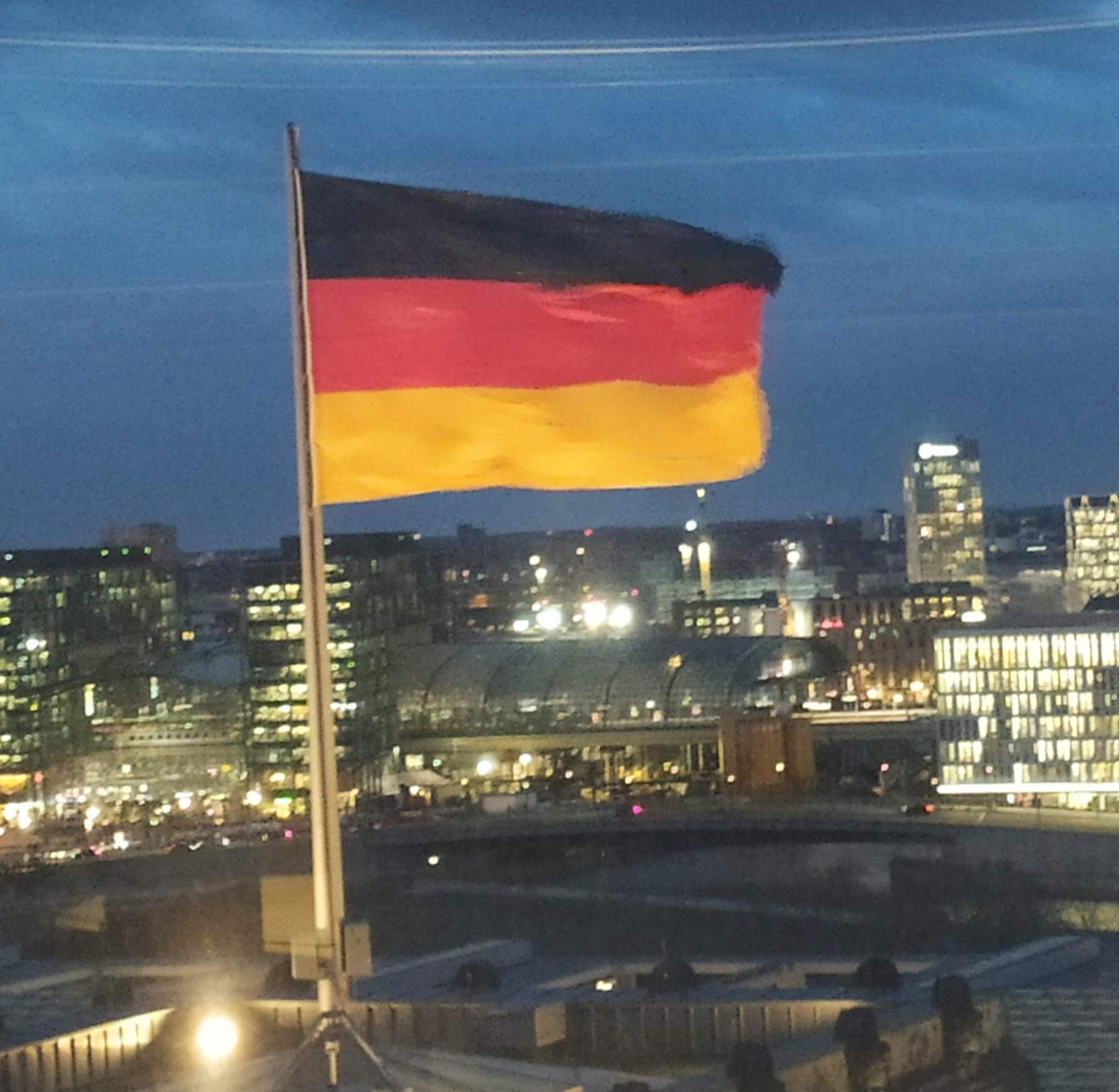Sieht echt schnieke aus.
- 21 Posts
- 418 Comments

 4·3 days ago
4·3 days agoAlso, can someone please explain how the fuck we wirelessly transmit electricity
It’s not electricity per se which is transmitted, i.e., electrons which pass through some material (like in cables, or through air when a lightning strikes and the air becomes a plasma through the electric ionization process).
It is radio waves. Electromagnetic waves of a specific spectrum. Like light, WiFi, TV signals (via antenna), Lasers, etc…
It is a form of energy transmission.There is a whole field about wireless power transfer. One of them some use everyday: wireless inductive chargers for some smartphones or electric toothbrushes. Those rely on the Lorentz force: if you create a varying magnetic field on the one side and have a coil on the other, you can transfer energy. Read up on Lorentz forces and magnetic induction if you want to learn more. Faraday’s law of induction would be another good read.
Regarding the spacey stuff, that’s trickier. Applying Lorentz principles here on such a scale would be extremely inefficient and probably dangerous as you would need to create an enormous magnetic field. So using focused beams of radio waves has much less losses. Depending on the type of radiation, or wavelength to be more precise, microwaves or even lasers are used for the transmission, whereas microwaves are preferred due to less atmospheric scatterings. They are not allowed be too strong as that would pose several hazards. Instead it has signal strenghts which are safe. To maximize throughput multiple beams could be used.
Important: this is now electromagnetic stuff, not purely magnetic stuff as with the inductive chargers.So how does this work from source to receiver?
- Source: Sun, emits a shitload of light, other radiation and therby energy.
- Sunwaves hit photovoltaic panels on the satellite.
- Panels generate direct currents by this.
- Direct current gets converted into alternating current (we need this to create electromagnetic beams)
- AC gets formed into beams (electromagnetic waves such as microwaves) and emitted at a specific location on earth.
- On earth some form of antenna receives these beams. Due to the way these antennas work, an electric alternating current is generated. (See dipole antenna for a simple example.)
- This AC needs to go through some transformations to meet some electric specifications to be directly feeded into the elctric grid.
- Alternatively can be transformed into DC again and directly be used, stored in batteries or, depending on the grid, be feeded into that.
Done.
Question, if electricity can be transmitted as a radio signal, why could we generate power here on earth in areas where renewables are super abundant (turbines in the ocean, giant waterfalls, deserts for solar, et cetera) and transmit that around the earth to areas where it’s needed? Why does it have to be in space for this to work?
In theory, we absolutely could do that. This has some practical limitations though which makes it more complicated and less efficient.
Transferring energy on a more “horziontal” way on earth would need to overcome a plethora of obstacles like buildings or mountains. Furthermore such long range transmissions would suffer from a lot more atmospheric scattering, be sensitive to moisture and weather conditions etc. Also, we would need to have large antennas and tightly focused beams which is a big technical challenge and would further loose efficiency, especially over long dictances.
We would also need to guarantee much more “safe corridors” to efficiently transmit without causing harm. And over long distances within the atmosphere the beams must be much stronger to effectively carry enough energy, as much is lost due to scattering, absorption etc… From space a lot of these difficulties don’t exist or don’t have such a large impact. On very short distances should be less of a problem.I can imagine, however, transferring energy into space to a satellite, which then forwards it to another receiver at a very different place on earth. Such relay satellite concepts are also not new as I’ve seen. They’ve just not been made yet. But that’s surely just a question of time. They face further challenges, since at each intermediate power station you have energy losses, but they could provide much more flexibility. I don’t see this as an issue which can’t be overcome.
Sry if this answer isn’t really polished. I tried to convey the most important aspects and am too tired for anything more. Hope this helps.

 4·3 days ago
4·3 days agoMir geht’s ähnlich was die Bedeutung des Namens angeht, auch wenn der Vorname erstmal für die meisten harmlos wirkt. Ich habe auch meiner Partnerin verboten mich bei dem Vornamen zu nennen, was sie auch sehr liebevoll einhält und mich stattdessen schon seit Jahren eigentlich nur mit einem Kosenamen anspricht, der zufällig entstanden ist. Was den Nachnamen betrifft gilt das vor allem meiner weiteren Verwandschaft, mit welchen ich nichts zu tun haben will, da es für mich schlechte Menschen sind.
Was das Verhindern von zu häufigen Umbenennungen betrifft: Oder, statt eines Zählers, das ganze einfach zeitlich einschränken. Wenn ich das richtig verstanden habe können Queers ihren Namen nun höchstens 1x pro Jahr ändern? Warum nicht so? Ich wäre auch mit 1x alle 3 oder 5 Jahre zufrieden. Würde ihn voraussichtlich eh nur ein einziges Mal ändern wollen.

 12·4 days ago
12·4 days agoLustigerweise wird es bei solchen Namen wie Adolf deutlich einfacher. Nicht aber für die gewöhnlicheren Namen.

 231·4 days ago
231·4 days agoDas ist ein toller Sieg für queere Menschen!
Alle anderen, die ihren Namen, nicht aber das Geschlecht, ändern wollen und nicht queer sind, brauchen aber immer noch psychologische Gutachten und müssen eine Reihe von bürokratischen Hürden überwinden. :/
Das soll nicht missgünstig klingen, ich will nur auch eine einfachere Möglichkeit dazu haben meinen Vor- und Nachnamen zu ändern.

 3·4 days ago
3·4 days agoMikroplastik ist schon Grund genug.

 21·4 days ago
21·4 days agoAutoplagiatschredder
Wann verstehen die Leute endlich mal, dass LLMs ein Teil von KI sind, aber KI noch so unglaublich viel facettenreicher ist als LLMs und so viel mehr an Algorithmen und Modellen zu bieten hat als das?

 81·6 days ago
81·6 days agoIhr habt Geld zum Sparen?

 4·6 days ago
4·6 days agoAber was ist, wenn man aus der Puste ist und sein Fahrrad deswegen eine Weile zu Fuß schiebt? 🤔

 2·7 days ago
2·7 days agoNRW.Genius schmeißt alle mitte-rechts und rechts Gesinnten raus. Effizienz steigert sich.
Nun streiten sich die mitte-links bis Links Gesinnten, ob der Einsatz von KI ethisch vertretbar ist. Alle haben eine ähnliche Meinung aber kommen nicht auf einen Nenner und streiten deswegen wochenlang rum.
Effizienz sinkt wieder auf das vorherige Niveau. NRW.Genius schmeißt sie alle raus.
NRW.Genius stellt Praktikanten, Azubis und Werkstudenten ein. Der Laden läuft ähnlich scheiße wie vorher, aber besser geht es offenbar nicht.
Pareto-Optimum erreicht.
NRW.Genius kündigt sich selbst und geht mit einer fetten Abfindung nach Hause. Es verwirklicht seinen Traum als KI-Hobbygärtner.

 15·7 days ago
15·7 days agoStupid people are easier to control.
Der andere Teil hängt an der Decke. Ist daher grad nicht sichtbar. /j
Die Dänen haben also angefangen ihre Eroberungsträume in die Tat umzusetzen und sich Sylt als erstes geschnappt. Macht Sinn, die kennen sich mit Inseln aus.
Außerdem:
*Dusseldorf/j
Google erfindet Transformer. Google schafft es nicht Transformer zur Übersetzung von Texten einzusetzen, was besonders ironisch ist, da in dem initialen Paper der Transformer z.B. an EN <-> FR Übersetzungen demonstriert wurde.
OpenAI nutzt Transformer für ChatGPT und geht durch die Decke.
DeepL nutzt angepassten Transformer und liefert gute Ergebnisse (wenn auch nicht makellos).
Google bleibt sich treu, indem Google-Übersetzungen scheiße bleiben.

 11·9 days ago
11·9 days agoGraphen Batterien sind aber ziemlich cool. Müssen natürlich erstmal marktreif werden. Aktuell ist die Produktion noch enorm teuer.

 3·9 days ago
3·9 days agoDie AfD wahscheinlich mal wieder. Oder CDU. Hauptsache dagegen.

 1·9 days ago
1·9 days agoKann man sich auch auf die Fußsohlen reiben, um unangenehme Gerüche loszuwerden.
 12·9 days ago
12·9 days agoBerühmte letzte Worte.
Kleiner Spaß. Viel Erfolg und vielen Dank! ❤️

 23·10 days ago
23·10 days agoFür alle, die den Kackladen jetzt auch meiden wollen, es handelt sich um das Nachrichtenportal:
Grafschafter Nachrichten:
https://www.gn-online.de/
Die betreiben auch ein Stellenportal:
https://jobs.gn-online.de/Quelle:
BGH Urteil vom 26.09.2024 - Aktenzeichen I ZR 142/23Die kläglichen Zensurversuche im veröffentlichten Urteil ließen sich schnell durch ein wenig ecosian (im Internet mit Ecosia suchen) zu Nachrichtenportalen und Stellenanzeigen in der Grafschaft Bentheim und URL-Abgleich mit dem Urteil finden.
(Gut, auf einigen Nachrichtenseiten stand es auch wie ich im Nachhinein festgestellt habe.)Da das eh ein Kaffportal ist, hätte ich es vermutlich eh nie genutzt. Aber die Arschlöcher machen es nun dadurch allen schwerer, weil das BGH Urteil dann natürlich für alle Jobportale von Kommunen in ganz Deutschland gilt.
Warum auch den Menschen das Leben einfacher machen, wenn man stattdessen fett absahnen kann?


Ah ja strukturelle Veränderungen. Das kann die CDU doch ganz gut, indem sie alles privatisiert. Telekommunikation, Bahn, Post, Krankenhäuser… Läuft doch super spitze! /s
Da stimme ich Wirtschaftsheinis ausnahmsweise mal zu: grundlegende Strukturen müssen sich verbessern.